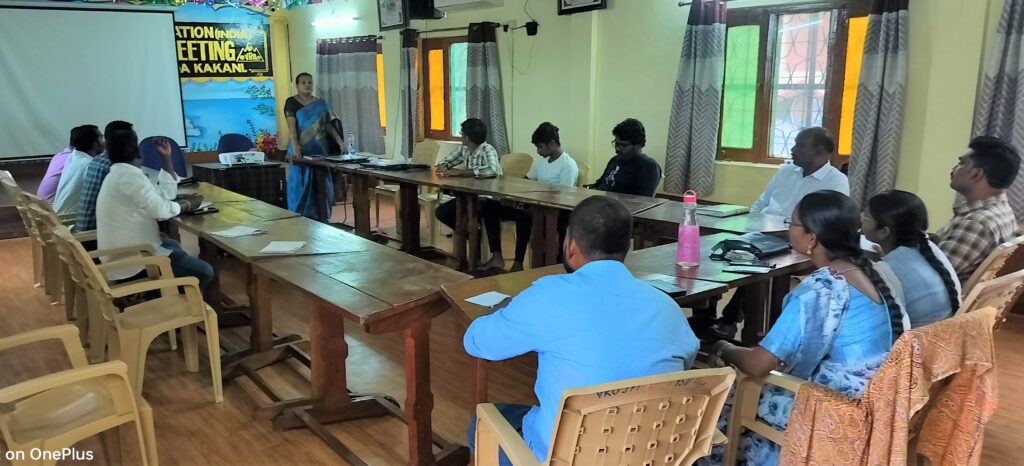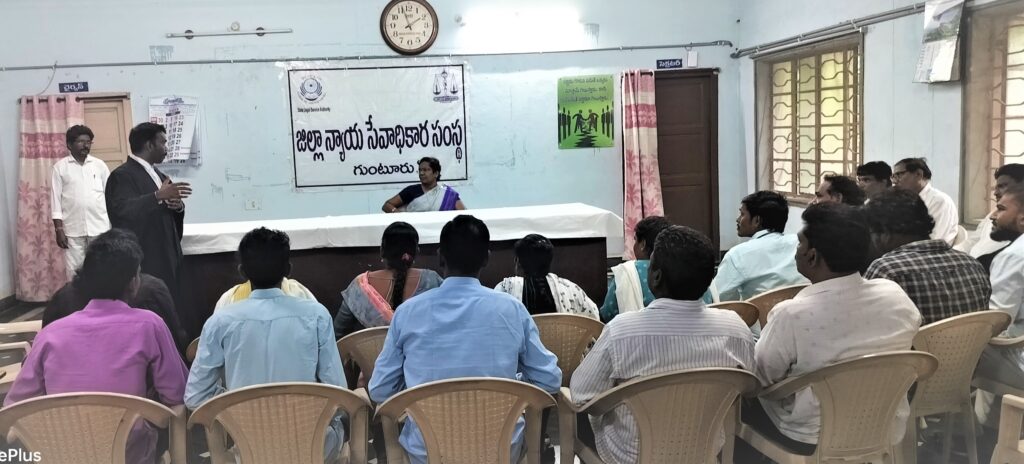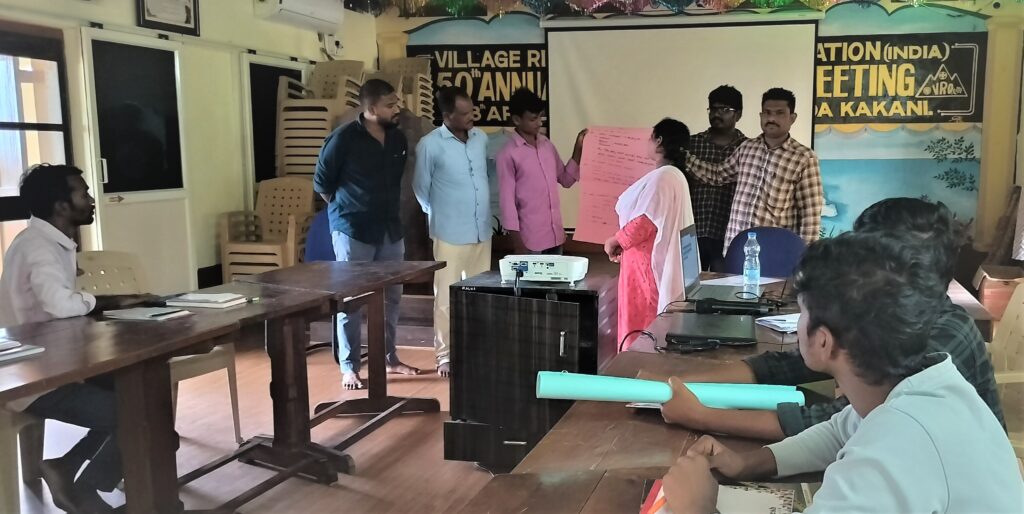


Mounika, a trainee said, “She gained invaluable knowledge about human rights, understanding the significance of upholding equality, dignity, and justice for all”. She developed a comprehensive action plan to raise awareness and advocate for human rights in her community. She is determined to make a positive impact, promoting a more inclusive and compassionate society.
The five-day ‘Legal Literacy’ capacity building program had a transformative impact on 13 youth from Andhra Pradesh and Telangana. Participants learned about major criminal acts like the Indian Penal Code (IPC) and Criminal Procedure Code (CRPC), Civil Procedure Code (CPC), understanding the legal framework for investigating and punishing crimes. They gained insights into human rights, emphasizing equality, freedom, and dignity for all individuals, regardless of background. The program also covered the roles of SC/ST Commissions in safeguarding the rights of marginalized communities and focused on child rights, empowering participants to advocate for children’s protection and well-being in their regions.
Bhaskar another trainee said, “This training program on drafting complaints, FIR details, and RTI was an eye-opening experience for me”. Understanding the intricacies of drafting complaints and FIR details has given confidence to articulate his grievances and seek justice in a more structured manner. Additionally, learning about the Right to Information (RTI) Act empowered to access crucial information from government authorities, fostering transparency and accountability.
The significant learnings of Directive Principles of State Policies (DPSP) has helped Prasanthi focus on the role of social and economic justice for citizens. Prasanthi wants to collaborate with various legal practitioners of criminal laws daily, including the IPC, CRPC, and Child Protection Act. She acknowledges the IPC’s classification of offenses into different categories and highlights the importance of specific laws to protect marginalized communities, ensuring their rights and welfare through institutions like SC/ST Commissions.
The importance of understanding various criminal laws and offenses, including the IPC, CRPC, and Child Protection Act are important to ensure a comprehensive grasp of the legal landscape says, Ramesh. He also stressed the significance of laws protecting marginalized communities, championed by the SC/ST Commissions, ensuring their rights and welfare are safeguarded.
I am delighted to share that the training was exceptionally well-structured, covering a wide range of legal topics, from criminal laws to fundamental rights said, Adv Karuna Rao, State Facilitator of Andhra Pradesh and Telangana. The diverse perspectives shared by participants enriched the discussions, providing a holistic understanding of the subject matter. The program’s strong emphasis on human rights, social justice, and welfare principles reflect commitment to creating a fair and inclusive legal system. Overall, it was a thought-provoking and valuable learning experience, equipping all participants to make positive contributions in the legal domain. I am grateful for the opportunity to be a part of this transformative journey.
The five-day training program was organized from 26 to 30 July 2023 held in VRO head office, Peddakakani, Guntur District, Andhra Pradesh as part of the program of Social Inclusion and Democracy Unit of Indian Social Institute Bengaluru in collaboration with Canossian Daughters Social Service Society (CDSSS) Veeraghattam and Gopalapuram, Loyola Tribal Animation Centre (LTAC) Seethampeta, Loyola Integrated Tribal Development Society (LITDS) Katukapally, JMJSSS-Guntur and Caussanel Foundation for Educational and Development (CAFED) Venkatapuram. There were 9 male and 4 female participants.
Adv. Karuna Rao
Facilitator, Andhra Pradesh/Telangana
Social Inclusion and Democracy
